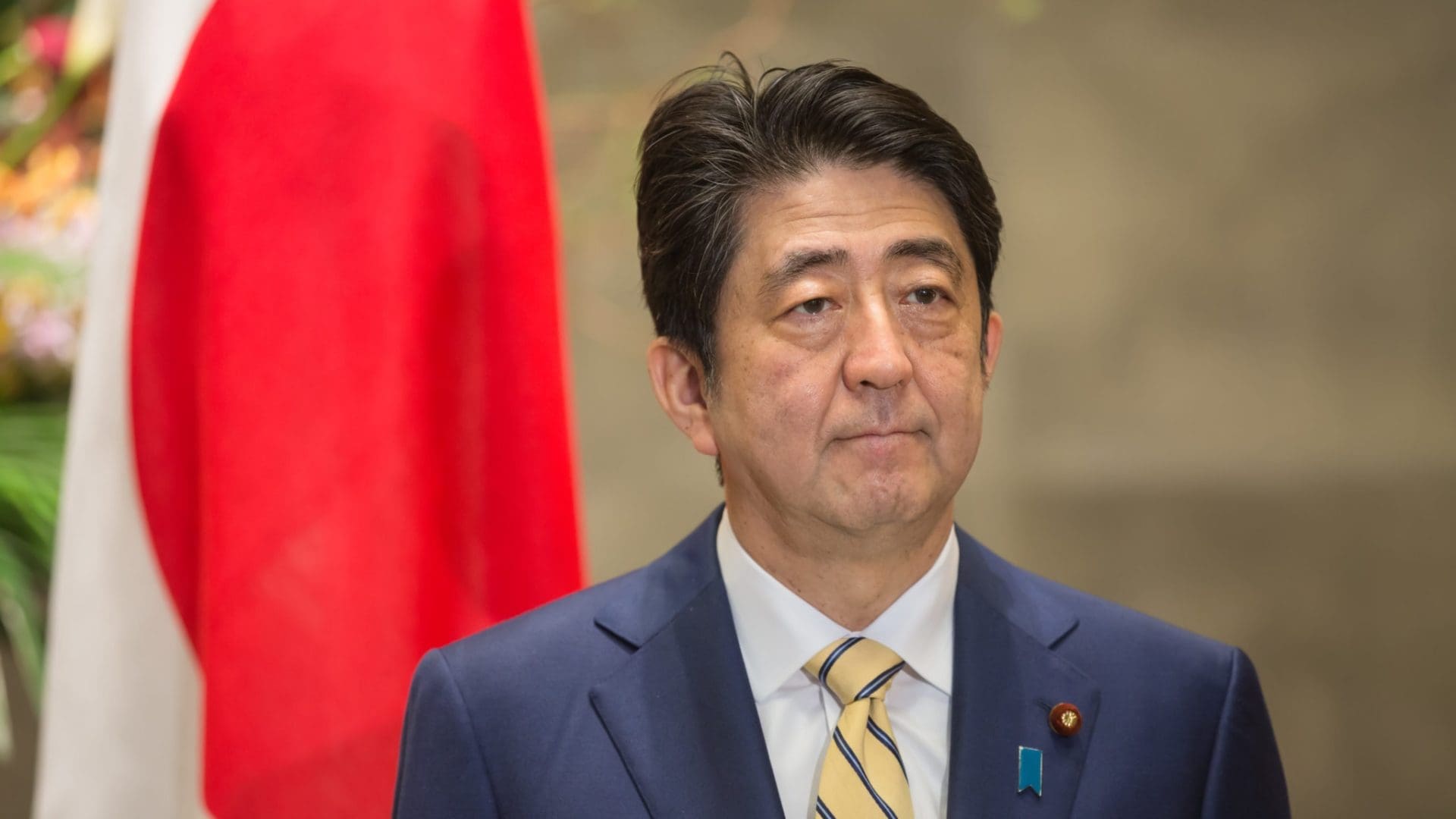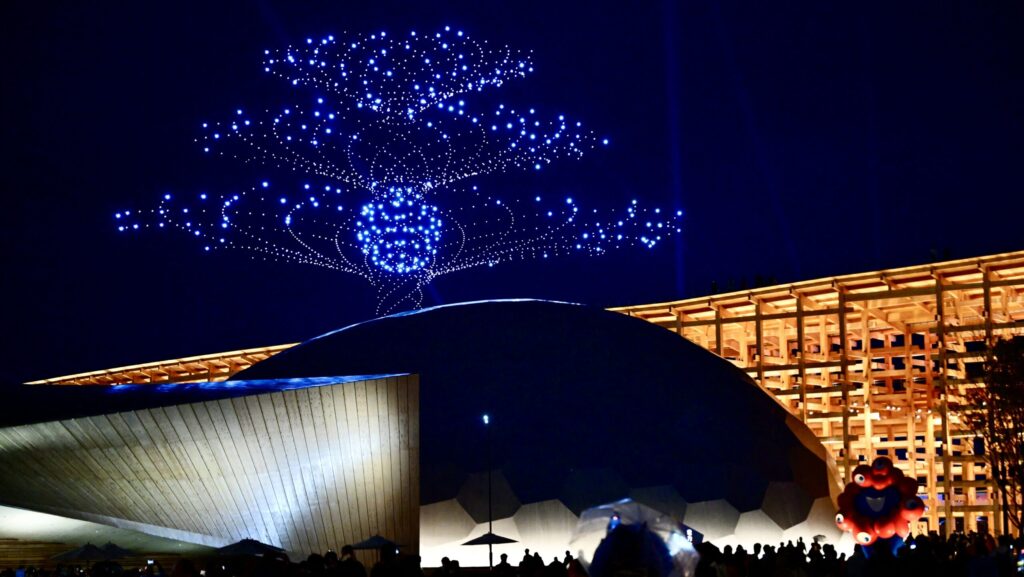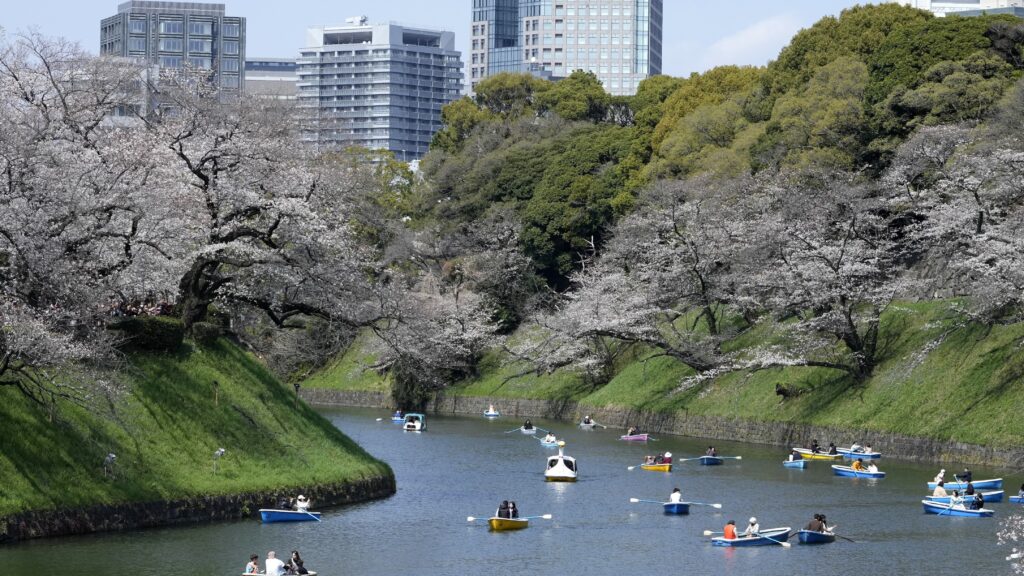I was celebrating a birthday in one of Budapest’s finest Japanese restaurants when I learned about the tragic death of Japan’s former prime minister, Abe Shinzo. It was almost unreal, with our waiter telling us that the people from the Japanese Embassy who were supposed to lunch there that day had understandably cancelled their reservation. ‘The Japanese are serious about everything—when they mourn, they really mourn,’ the waiter, Hungarian but a Japan enthusiast, declared.
I have had the privilege of visiting Japan two times as a secondary school student and I had the same perception about the Japanese as the waiter. There didn’t seem to be anything they did half-heartedly. But of course I am biased, as somebody who has always been fascinated by Japanese culture. Beside its numerous facets of uniqueness, Japan, as an acquaintance of my mother’s told her reassuringly before my trip, it is also ‘probably the safest country in the world.’
And that is precisely one of the reasons why the assassination of Abe Shinzo has been such a shock. As Hino Airo, professor of political sciences at Waseda University said, the shooting is ‘unprecedented’ in post-WWII Japanese history. The only instances of violence against politicians were in 1960, when the head of the Socialist Party was killed with a Samurai sword by a right-wing youngster, and then when a Yakuza gangster shot the mayor of Nagasaki in 2007, but there have been no attempts on the life of former or incumbent PMs since the 1930’s. Also, Japan has the world’s strictest gun loans—which did not prevent the killer of Prime Minister Abe to murder him with a home-made weapon.
Prime Minister Orbán, who visited Japan in 2013, reacted to the news of the assassination by stating on social media ‘We lost an important friend.’ In Brazil, the country that has the largest Japanese diaspora in the world, President Bolsonaro ordered a three-day mourning, after stating that the former Japanese PM was ‘a brilliant leader and Brazil’s great friend.’ French President Emanuel Macron also described the late Japanese PM as a friend and said he was a great PM ‘who dedicated his life to his homeland and worked to ensure order in the world.’
‘We lost an important friend’
Former President Donald Trump also mourned the assassination of former Japanese Prime Minister Abe Shinzo, the first foreign leader to meet Trump following his election in 2016. Trump said Abe was ‘a unifier like no other, but above all, he was a man who loved and cherished his magnificent country, Japan. Shinzo Abe will be greatly missed. There will never be another like him.’
On the day of his funeral, the NYT said Abe ‘could sometimes look like yet another one of the world’s modern breed of nationalist leaders, alongside Viktor Orban in Hungary, Vladimir Putin in Russia, Xi Jinping in China and Donald Trump in the U.S. Abe, by contrast, tried to use Japanese nationalism mostly in the service of strengthening a global alliance of democracies.’ In an article in The Atlantic David Frum wrote, ‘Abe is often described as a nationalist,’ ‘He deserves to be remembered instead as one of the great internationalists of his era, the leading architect of collective security in the Indo-Pacific region.’
But his fiercest critics, who happen to be the same that go to great lengths to denigrate Viktor Orbán or Donald Trump for that matter, went as far as comparing his party, the LDP to the Nazis, claimed that Abe reduced Japan to a one-party democracy and suggested that he wanted to revive Japanese imperialism.
But who was Abe Shinzo, and what is his political legacy?
In brief, he was a conservative and a reformer, a nationalist and yet pragmatic politician, who had great ambitions regarding Japan’s international standing. A photo showing Mr Abe bowing to the Japanese flag after he announced his resignation in 2020 encapsulates the essence of his character.
He came from a family of politicians. His father, Abe Shintaro, was Japan’s moderate and pragmatic foreign minister from 1982-86. His maternal grandfather, Kishi Nobosuke, was Minister of Supply under the Tojo government during World War II and the developer of the Manchurian Empire project. He also became the Prime Minister of Japan between 1957 and 1960. Kishi was initially charged with war crimes but was subsequently cleared of the charges by a Tokyo tribunal. However, China’s September 18 Museum in Shenyang, the city—where the Japanese occupation of China first began in 1931—that showcases the atrocities committed by invading forces describes Kishi ‘a Class-A war criminal.’ Kishi’s name, on the other hand, is associated with the revision of the Japan-US security treaty, which stipulated that the US could not interfere in Japan’s internal affairs and would show a greater commitment to the defence of the island nation.
Abe Shinzo studied political science in Japan and in the United States, and worked in the private sector until 1982. Between 1993-2006 he was a member of the House of Representatives and in 2005-2006 he became the chief secretary of the cabinet in the government of his predecessor Junichiro Koizumi, until he was elected Prime Minister for the first time, becoming, at 52, the youngest post-World War II prime minister, and the first to be born after World War II. His first tenure proved to be short, as he had to resign for health reasons after only just one year in office. In December 2012, he was elected Prime Minister for the second time and, after winning early elections twice in 2014 and 2017, he remained in office until August 2021, when he again resigned citing his worsening health.
His large-scale and bold economic policy plan was dubbed “Abenomics” by the media
During his second tenure Abe focused on the revitalization of the Japanese economy. His large-scale and bold economic policy plan was dubbed “Abenomics” by the media. The ambitious plans of the programme included fighting deflation and keeping interest rates low, increasing public investments, and most importantly, the implementing of structural reforms focusing on revitalizing the industry, reforming employment, and increasing the employment of women. The latter, known as “Womenomics,” aimed to offer a solution to the challenges caused by the serious demographic pressure on Japan, by putting retired women and women who stay at home to raise children back to work, by reforming the social welfare system, and by aiming to promote childbearing. Abe’s ambitious goals were only partly realized, and while the economy saw its longest cycle of growth after the bubble of the nineties, the country’s state debt also grew to unprecedented levels. There was quite a lot of resistance to his Womenomics as well, and the Covid pandemic did not help either.
Prime Minister Abe also worked toward reviewing the so-called “peace constitution” that has restricted Japan since World War II. He pursued the “normalization” of Japan in the military sense. However, this was met with scorn and resentment by many both at home and abroad, as the fear of Japanese power and historical revision is still strong, which hindered the possibility of deepening cooperation in the region that Prime Minister Abe was committed to.
‘We must change our attitude of leaving all military matters to America. Japan must take responsibility for peace and stability and do our utmost by working together with America to achieve it,’ Mr Abe said at one point. ‘This is not an abstract or ideological debate about whether or not the constitution authorizes collective self-defence. This is a debate about what can be done within a constitutional framework in order to ensure the life and peaceful livelihood of the Japanese people, taking into account all possible real cases.’
Mr Abe also angered both China and South Korea when he became the first Japanese leader in seven years to visit the Yasukuni Shrine, which honours Japan’s civilian war-dead but also enshrines war criminals, including officials behind the Nanking massacre. After his visit he confirmed that he did not want to create a revisionist Japan that returns to its imperialist roots and said he has also committed to the war dead that ‘Japan will never fight a war again.’ He reiterated that the Constitution needed to be reviewed in order for Japan to have sufficiently broad self-defence capacities and to be able to protect its citizens. He stressed that the prime minister ‘has the responsibility… to ensure the life and peaceful livelihood of the people.’
Amidst plenty of criticism, Mr Abe’s government also reformed Japanese school curricula so that it includes less self-criticism and more focus on Japanese national pride.
Many have likened Abe Shinzo to Viktor Orbán, and the late Japanese PM was indeed comparable to the Hungarian prime minister in terms of his political and personal credo and unrelenting loyalty to his homeland. He may have been less successful than Orbán in achieving his objectives, mainly because his visions were not fully supported by the vast majority of voters as is the case in Hungary. Prime Minister Abe also be battled with a serious illness throughout his life, which also hindered him, but never defeated him.
Many have likened Abe Shinzo to Viktor Orbán
Japan lost a great patriot, and the world a great conservative leader in Abe Shinzo. Following the senseless murder, his party came out strengthened from the Senate elections earlier this week and has been handed an opportunity to realize if not all, but at least some of Abe Shinzo’s goals.








